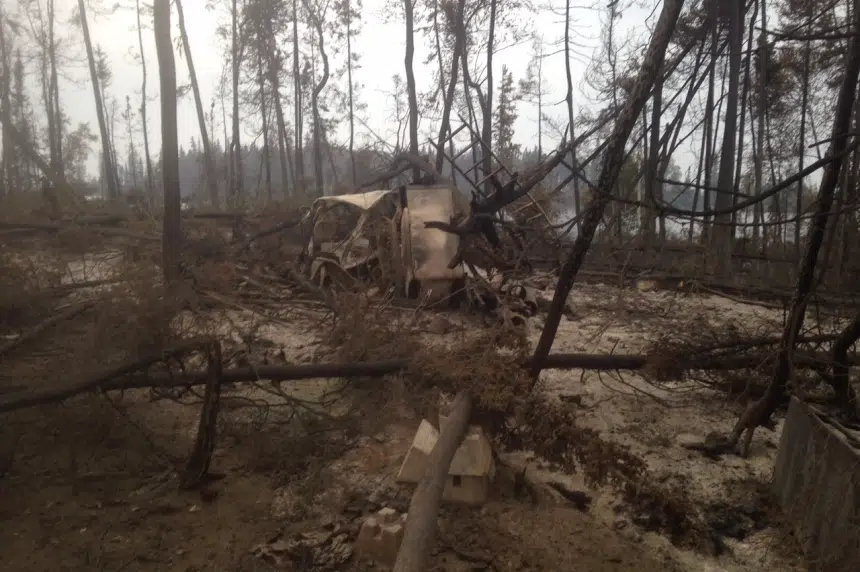The premiers of Saskatchewan and British Columbia would like to see a national approach to fighting forest fires, fearing this year’s wildfires are the new normal.
Saskatchewan’s Brad Wall said Thursday he is grateful for the help his province has received from across the country and called for a partnership between the provinces and the federal government to ensure equipment is available where it is needed.
Training for military personnel on fighting fires also needs to be looked at, he said after a meeting of the country’s premiers in St. John’s.
“We do want our federal government to join with us in ensuring that part of basic training for the forces is firefighting capability and this would help us face down a year like we’ve had, maybe even get a bit ahead of the curve in all of these provinces and territories,” Wall added.
British Columbia Premier Christy Clark said her government budgeted $60 million to fight forest fires this year, but it could be looking at a bill of $300 million to $400 million.
In the past, she said ministers came up with a national strategy to share resources, but this year B.C. has gone as far as Australia and South Africa to bring in firefighters who are trained to work on difficult terrain.
Clark thinks a national plan is needed because what is happening this year in western Canada isn’t going to be unusual.
“The other issue that we need to address is the reality that due to climate change, these summers, these long, hot burning summers, are not going to be the exception,” she said.
“They are going to be, I think, more commonly the rule so we have to rethink the way that we deal with fires, the way we prepare to deal with fires, because the world is changing, the climate is changing and we are going to have to adjust our capacity to be able to meet those changes accordingly.”
Both premiers said they would like a national plan to be in place before the next fire season.
The comments came as more evacuees were allowed to go back to their homes in northern Saskatchewan, with firefighters gaining the upper hand on wildfires threatening some towns and reserves.
Evacuation orders were lifted Thursday for several communities including Montreal Lake, Weyakwin and La Loche, a village of about 2,600 people.
As well, a government spokeswoman said officials may lift the mandatory evacuation order in the next day or two. More details will be released Friday.
A higher-than-average number of fires this season forced about 13,000 people out of their homes in about 50 communities over the last three weeks. Fires have destroyed about 90 homes, many of which were seasonal cabins.
More than 1,700 firefighters, including soldiers, have been working on the fire lines.
Meanwhile, British Columbia’s Wildfire Service is urging people against becoming too complacent as the number of blazes burning up forests drops by dozens.
Fire information officer Kevin Skrepnek says there are currently about 166 wildfires across B.C., down from the 220 reported by the service early this week.
He says lightning has caused fewer fires to continue burning because of accompanying rain and that crews have hit the flames fast.
Skrepnek says that despite lower temperatures in recent days, hot dry weather is expected to return by the weekend.
He says B.C. saw an abnormal amount of lightning early in the fire season but now is the time when the core lightning season normally begins.
The wildfire service says 96 properties are on evacuation order across B.C., about 300 members of the Alexis Creek First Nation remain on evacuation alert, and a campfire ban is still in place except for Haida Gwaii and the fog zone.











